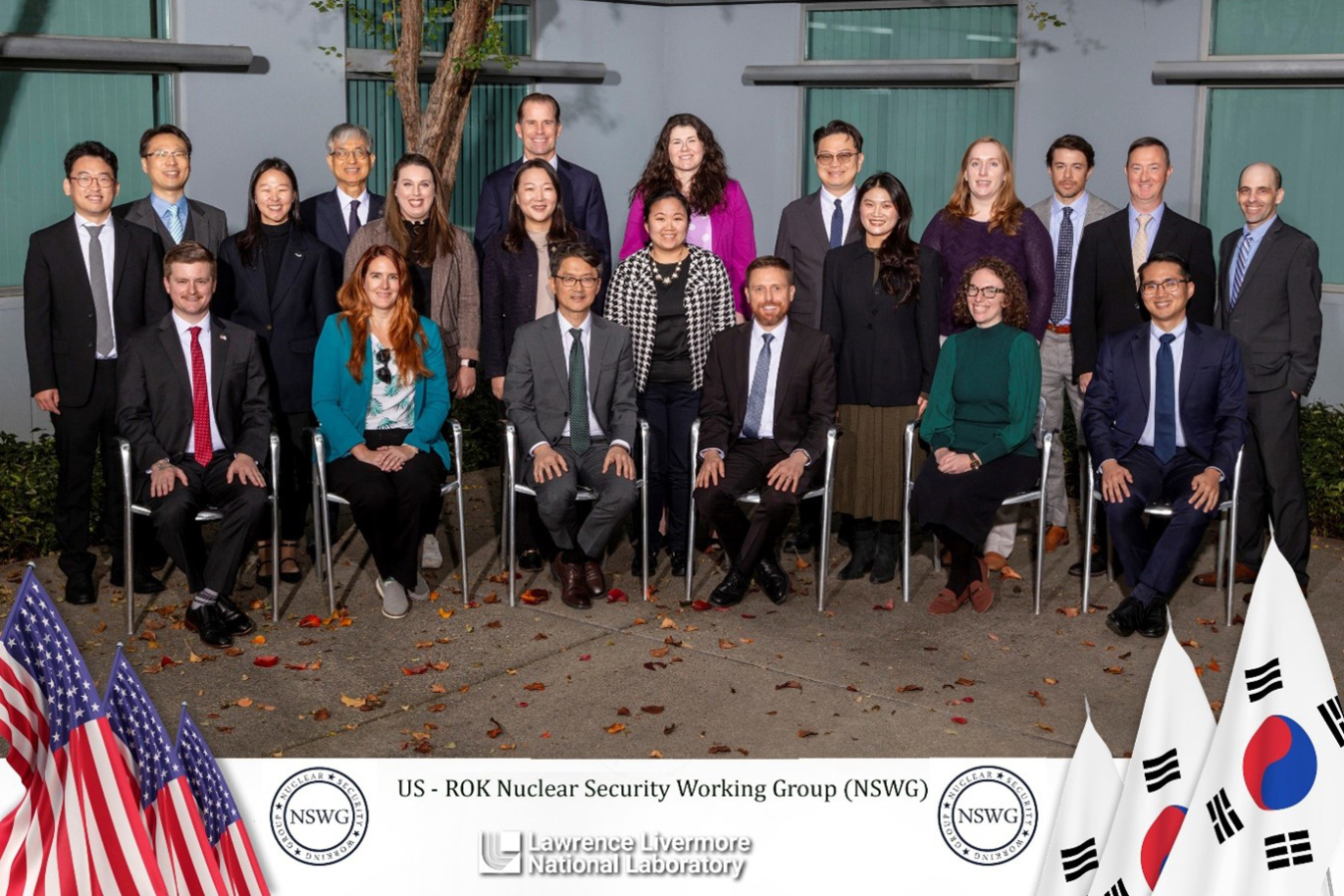The U.S. Department of Energy’s National Nuclear Security Administration and the Republic of Korea’s Ministry of Foreign Affairs co-hosted the seventh Nuclear Security Working Group this month at Lawrence Livermore National Laboratory.
National Nuclear Security Administration
November 19, 2024
WASHINGTON – The U.S. Department of Energy’s National Nuclear Security Administration (NNSA) and the Republic of Korea’s (ROK) Ministry of Foreign Affairs (MOFA) co-hosted the seventh Nuclear Security Working Group (NSWG) last week at Lawrence Livermore National Laboratory.
Collaboration is at the heart of our partnership, and through strategic platforms like the NSWG we are advancing scientific and technological goals for a more secure world.
NSWG is a senior-level interagency forum to discuss technical and strategic approaches to advancing shared nuclear security goals. NNSA Associate Assistant Deputy Administrator for Global Material Security Andrew Vogt and MOFA Director General for International Organizations and Nuclear Affairs Lee Chul led the meeting.
"The Republic of Korea is a critical partner to the United States, and together we advance nuclear nonproliferation bilaterally, regionally, and globally,” Vogt said. “Collaboration is at the heart of our partnership, and through strategic platforms like the NSWG we are advancing scientific and technological goals for a more secure world.”
Colleagues from the Korea Atomic Energy Research Institute and Korea Institute of Nuclear Non-Proliferation and Control joined NNSA’s Offices of Counterterrorism and Counterproliferation and Defense Nuclear Nonproliferation at Lawrence Livermore National Laboratory for the robust strategic dialogue.
In his opening remarks, Director-General Lee emphasized that, in response to future energy demands driven by climate change and the development of artificial intelligence, there is a global trend toward expanding nuclear power. He also pointed out that, given the increasing instability in international affairs, raising awareness and strengthening nuclear security and preparedness regarding nuclear incidents have become more crucial than ever.
At this year’s NSWG, members celebrated accomplishments since last year’s meeting, including a multilateral crisis communications workshop, technical exchanges on performance testing, and the ROK’s implementation of a jointly developed cybersecurity training course. NSWG members also outlined priority areas for 2025.

